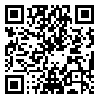Volume 14, Issue 1 (4-2014)
Iranian Journal of Medical Education 2014, 14(1): 32-40 |
Back to browse issues page
Download citation:
BibTeX | RIS | EndNote | Medlars | ProCite | Reference Manager | RefWorks
Send citation to:



BibTeX | RIS | EndNote | Medlars | ProCite | Reference Manager | RefWorks
Send citation to:
Rafii F, Saremi rasouli F, Najafi ghezeljeh T, Haghani H. The Relationship between Academic Procrastination, Academic Achievement, and Self-Efficacy in Nursing Students of Tehran University of Medical Sciences. Iranian Journal of Medical Education 2014; 14 (1) :32-40
URL: http://ijme.mui.ac.ir/article-1-2911-en.html
URL: http://ijme.mui.ac.ir/article-1-2911-en.html
, sarami_f@yahoo.com
Abstract: (22306 Views)
Introduction: Most college students continuously procrastinate on academic tasks. Yet, those with higher levels of self-efficacy usually consider assignments as challenges to overcome. The aim of this study was to investigate the relationship between academic procrastination, academic achievement, and self-efficacy in nursing students of Tehran University of Medical Sciences.
Methods: This cross-sectional correlation study was performed on a sample of undergraduate nursing students on semesters 3 to 6 and graduate nursing students on semesters 2 and 4 who were selected through modified cluster sampling method. Data was collected through questionnaires of procrastination assessment student scale, academic self-efficacy scale and academic achievement (grade point averages of preceding semesters). Data was analyzed using descriptive and inferential statistics (Pearson correlation, ANOVA, and t-test).
Results: There was a significant inverse linear relationship between self-efficacy and academic procrastination achievement in nursing students (p<0.001) so that if the academic procrastination increased, academic achievement and self-efficacy would decrease and if the academic self-efficacy increased, academic achievement would increase. Among the demographic variables, gender was more associated with academic procrastination and academic self-efficacy while age was more associated with academic achievement.
Conclusion: Considering the finding that increase in academic procrastination will decrease academic achievement and self-efficacy, complementary studies are needed to investigate causes of academic procrastination and ways to improve academic achievement and self-efficacy.
Type of Study: Original research article |
Subject:
other
Received: 2013/09/25 | Accepted: 2014/01/28 | Published: 2014/03/17 | ePublished: 2014/03/17
Received: 2013/09/25 | Accepted: 2014/01/28 | Published: 2014/03/17 | ePublished: 2014/03/17
پرسشنامه مطالعه [DOCX 18 KB] (665 Download)
Send email to the article author
| Rights and permissions | |
 |
This work is licensed under a Creative Commons Attribution-NonCommercial 4.0 International License. |




